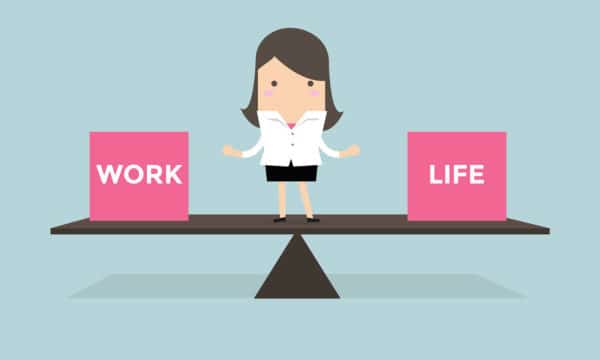My friend, Kate, who is in her mid-20s, recently left her job as a graphic designer to go back to school to pursue a career in speech language pathology. She felt ultra-guilty for quitting her current job to pursue a totally different career. A part of the guilt was the fact that she was leaving a job where she was getting paid, to go back to school and pay them.
After a while, Kate realized that the guilt was unnecessary. Her work friends would want her to be happy, and be proud of her for doing what she needed to do. For her, changing careers and going back to school was a worthwhile investment. A career in speech language pathology would make her more money than the graphic design job had, but most importantly, it would let her live a more fulfilled and happier life.
Stories like Kate’s aren’t that unique.
Most of us get our first “adult” job right after graduating from college—meaning, full-time, salaried, and with benefits. That’s the most logical to do as a next step in life, right?
Well, for a lot of us, we can’t afford not to work, with a ridiculous amount of student loans and debts looming above us.

However, let’s take a step back. We are forced to choose careers pretty darn early in our lives. As young adults, our lifestyles, communication skills, and motivating factors aren’t fully developed yet. So, it’s completely normal not to love your first jobs. In fact, you’re in an unordinary case if you really do love that first job… all the power to you.
But, if you’re like the most of us, you probably don’t want to stay with your first choice of career for the rest of your life. Times have changed since our parents were our age—back then, it was the norm to stay in one career forever, well at least until retirement. But, today, the average person changes their career around five to seven times in their life. Okay, great.
But, now the dreaded question: how do you change careers without feeling guilty?
See Also: How to Ask for That New Year’s Raise
Feeling Guilty is Normal

One of the main reasons that you might feel guilty is probably because you don’t want to leave your team at work hanging… not wanting to pile up your workload onto someone else. But, the thing is, this means you’ve developed enough skills – transferable skills – to have an impact on your company.
Now, don’t take this the wrong way, but the company was fine before you came along, and so chances are they’ll be fine after you leave. There are plenty of people who can (or learn to) do your job. Unless you have some extraordinary/one-of-the-kind set of skills or abilities, there is at least one (or dozens) of other people in the world who can do your job.
Also, it’s very important to remember that you’re not a quitter for changing careers. Growing up, most of us were told that it was bad to quit something you were striving for. But, as adults now, we have the capability of realizing something isn’t right for us after trying it. In fact, you’d be quitting on yourself and your dreams if you decide just to stay at your first job merely for the security and the fact that you’re already in it.
Frankly, This is YOUR Life

You didn’t vow to your company to stay with them ‘til death do you apart. Imagine your company is going through budget cuts and has to lay off employees, and your job is on the line. Do you think that HR and your boss would pull strings to keep you on? If the answer is ‘no,’ then it means that it’s okay to leave if you feel like you’ve done your time there.
A part of growing up is realizing you’re inevitably going to make some people sad, but that doesn’t mean that you should sacrifice your own happiness for that of others. if this career isn’t going to directly help you where you want to be in life, then move onto the next.
As women, we are more quick to form relationships in our workplaces than are men. Karen Elizaga, author of Find Your Sweet Spot: A Guide to Personal and Professional Excellence explains…
“equally, [men and women] have established personal relationships at the office, but for women, the personal and professional become more intertwined—our coworkers are our friends, even our family. And the guilt is magnified because we want to do right by our friends and family.”
However, you need to learn to separate the two, which leads us to:
Work/Life Balance is So Important to Keep in Mind

This harsh truth is work is purely business. Elizaga elaborates on this, “if either part of the equation ceased to be true, then it would be reasonable for either the employee or the employer to terminate the relationship.” If you’ve been offered a better opportunity elsewhere, or if you simply feel you’ve done all that you can in your current position, it is in your every right to leave without overwhelming guilt. Your relationship with your boss is first and foremost a business and should be treated as such.
It’s a two-way stream. If your company feels like you’re not adding value to them, then they’d have no problem letting you go. The exact same sentiment goes in the opposite scenario. If you feel like your current job isn’t fulfilling you or is satisfying, then you should leave. It is within your right to do so.
Give You and Your Company Enough Time to Prepare

A part of your guilt might be because you’re leaving your company in a blind. But, you can prevent this by being upfront with them and giving them a long enough notice. While you cannot predict every obstacle they might face without you, there are a handful of things you can do to make your departure easier for them to bear. Create thorough transition documents so your replacement can pick up right at where you left off. Offer your boss and HR help recruiting the new person.
All in the meanwhile, allow yourself time to feel excited about your new job. You should be proud of yourself for making this hard decision to put you and your happiness first.

